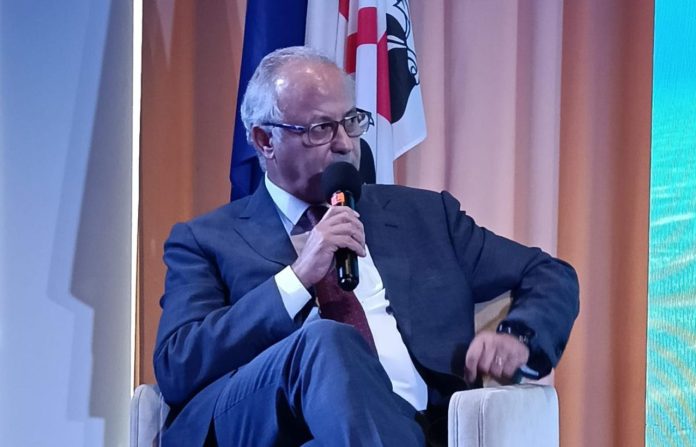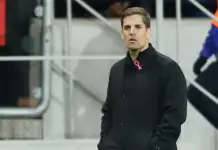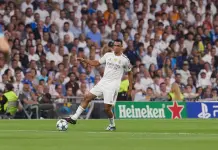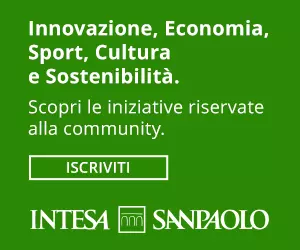ROME (ITALPRESS) – “Thanks to the royal vision, Morocco has made energy transition a strategic choice,” said Youssef Balla, Morocco’s Ambassador to Italy.
Speaking at a roundtable held this past weekend as part of FestMed in Olbia, Sardinia, on the theme “Shared Challenges and Interests in the Mediterranean: Energy, Tourism and Connectivity,” Ambassador Balla underlined Morocco’s central role in helping transform the Mediterranean into a space of opportunity, innovation, and shared prosperity in the 21st century.
He highlighted “major structuring projects, among the most important in the world at both national and regional levels,” carried out by Morocco, such as the Noor solar complex and the wind farms in Tarfaya and Tangier. Currently, around 42% of Morocco’s energy mix is green, with the goal of reaching 52% by 2030. The Ambassador also stressed Morocco’s ambition in the field of green hydrogen, with a roadmap that foresees producing 14 TWh by 2030 and launching six large-scale projects worth a total of €30 billion. He noted that, thanks to its geographical position and competitive costs, the Kingdom is well positioned to become a natural supplier for Europe. In the same spirit, he cited the Nigeria-Morocco gas pipeline project—spanning more than 5,600 km and crossing 13 countries—as a strategic corridor serving energy security, South-South cooperation, and regional geopolitical stability.
Turning to tourism, he emphasised Morocco’s unique offering, which combines imperial cities, the Sahara, mountains, and coastlines, while also expanding into new segments such as medical, digital, and film tourism. The 2030 FIFA World Cup, jointly hosted with Spain and Portugal, will, in his view, be a historic opportunity to enhance the attractiveness and visibility of the entire Mediterranean region. In this context, Ambassador Balla called for the adoption of a Mediterranean Charter for sustainable and responsible tourism that preserves the region’s shared heritage.
On the issue of connectivity, he pointed to the success of the Tanger Med port, now the leading port in Africa and the Mediterranean with 10 million containers handled annually, as well as key infrastructure projects including the Morocco-Spain underwater tunnel and the Euro-African digital highway.
He concluded by urging that the Mediterranean be seen as “a resource that unites us” rather than a space of division, stressing the need for cooperative responses to common challenges such as climate change, irregular migration, and geopolitical tensions.
“Morocco is ready to work with all its partners to make the Mediterranean basin a space for dialogue, innovation, and shared prosperity,” he said, underscoring the need for a pragmatic Mediterranean agenda and a fair partnership built on three pillars: Africa, the Mediterranean, and Europe.
– Photo Embassy of Morocco in Italy –
(ITALPRESS).














